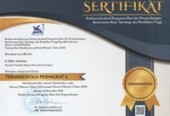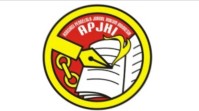Intra-party Democracy: The Practices on the Election of Prosperous Justice Party President
DOI:
https://doi.org/10.28946/slrev.Vol4.Iss2.638.pp154-171Keywords:
Intra-Party Democracy, Prosperous Justice Par-ty President, Election, New Order Regime, Reformation Era.Abstract
This paper will analyze the arrangements and practices for the election of chairperson (president) of the Prosperous Justice Party as one of the party's instruments in implementing intra-party democracy. There are two main issues to be discussed, namely: (i) has the regulation of the election of the president of the Prosperous Justice Party reflected democratic arrangements? (ii) has the democratic election been conducted in the Presidential Election for the Prosperous Justice Party? To answer this question, researchers examine all the laws and regulations relating to the legal issue in question. The laws and regulations referred to fall into two categories, namely primary and secondary legal materials. The results showed that both in terms of formulation of rules and practice, the election of the president of the Prosperous Justice Party is still far from democratic values. It is caused by the following five factors: (1) the right of nomination is not open to all party members but is nominated by the chairman of the Advisory Council, (2) the right to vote does not involve broad party elements but only becomes the authority of the members of the Advisory Council, (3) presidential candidates parties are not elected through a voting mechanism, but by appointment (acclamation), (4) the nature of the election is not competitive because it is always only followed by a single candidate, and (5) there is a limitation of the term of office of five years, but there is no limit on how many times. It has the potential for a party presidential position to be held by one person for an unlimited period.Downloads
References
Ach. Basyir, “Ideologi Politik Dilematis Partai Keadilan Sejahtera (PKS) Antara Gerakan Tarbiyah dan Pragmatismeâ€, Jurnal Agama dan Hak Azazi Manusia, Vol. 3, No. 2, Mei 2014.
Adi Prayitno, Paradoks Partai Modern: Studi Kasus Partai Keadilan Sejahtera, dalam Muhammad Hanifuddin, (ed). 2019, Literasi Politik: Dinamika Konsolidasi Demokrasi Indonesia Pasca Reformasi, Yogyakarta: IRCiSoD.
Ali Said Damanik, 2002. Fenomena Partai Keadilan: Transformasi 20 Tahun Gerakan Tarbiyah di Indonesia, Jakarta: Teraju.
Benjamin Akzin, “Election and Appointmentâ€, The American Political Science Review, Vol. 54, No. 3 (Sep., 1960).
Burhanuddin Muhtadi, 2012. Dilema PKS: Suara dan Syariah, Jakarta: Kepustakaan Populer Gramedia.
Fabio Wolkenstein, “A Deliberative Model of Intra-Party Democracyâ€, Journal of Political Philosophy, Volume 24, Issue 3, (2016).
Fredrik Bynander and Paul ’T Hart, “The Politics of Party Leader Survival and Succession: Australia in Comparative Perspectiveâ€, Australian Journal of Political Science, Vol. 42, No. 1, (2007).
Gideon Rahat and Reuven Y. Hazan, “Candidate Selection Methods: An Analytical Frameworkâ€, Party Politics, Vol 7. No. 3, (2001).
Giulia Sandri, Perceptions of Intra-Party Democracy and Their Consequences on Activism: A Comparative Analysis of Attitudes and Behaviours of Grass-Roots Party Members, Paper, presented at the 22nd World Congress of Political Science, Madrid, July 8-12-2012.
Gonda Yumitro, “Partai Islam Dalam Dinamika Demokrasi di Indonesiaâ€, Jurnal Ilmu Sosial dan Ilmu Politik, Volume 17, Nomor 1, Juli 2013.
Greg Fealy, “Pengantarâ€, dalam Yon Mahmudi, 2005. Partai Keadilan Sejahtera: Wajah Baru Politik Islam Indonesia, Bandung: Harakatuna Publishing.
Kenneth Janda, 2005. Political Parties and Democracy in Theoretical and Practical Perspectives, Washington, DC: National Democratic Institute for International Affairs.
Kuswanto, “Consistency of the Presidential System in Indonesiaâ€, Sriwijaya Law Review, Vol. 2 Issue 2, July (2018).
Lili Romli, “Partai Islam dan Pemilih Islam di Indonesiaâ€, Jurnal Penelitian Politik, Vol.l, No. 1, (2004).
M. Faishal Aminuddin, “Reorganisasi Partai Keadilan Sejahtera di Indonesiaâ€, Jurnal Studi Pemerintahan, Volume 1 Nomor 1, (Agustus 2010).
M. Imdadut Rahmat, 2008. Ideologi Politik PKS: Dari Masjid Kampus ke Gedung Parlemen, Yogyakarta: LKiS.
Moch. Nurhasim, et. al., “Resume Penelitian Masa Depan Partai Islam di Indonesiaâ€, Jurnal Penelitian Politik, Vol.13, No.2, Desember 2016.
Mohammad Riza Widyarsa, et, al., “Pengaruh Ideologi Politik Islam di Indonesia Terhadap Partai Politik di Indonesia: Studi Kasus Partai Keadilan Sejahteraâ€, Jurnal Al-Azhar Indonesia Seri Pranata Sosial, Vol . 1, No. 1, Maret 2011.
Ofer Kenig, “Classifying Party Leaders’ Selection Methods in Parliamentary Democraciesâ€, Journal of Elections, Public Opinion and Parties, volume 19, issue 4 (2009).
Ofer Kenig, Gideon Rahat, and Or Tuttnauer, “Competitiveness of Party Leadership Selection Processesâ€, dalam William P. Cross and Jean-Benoit Pilet, eds. 2015, The Politics of Party Leadership: A Cross-National Perspective, UK: Oxford University Press.
Rusdiyanta, Muh. Umar Wirayuda, and Doddy Wihardi, “Transnasionalisasi Ideologi:Kasus Ikhwanul Muslimin terhadap Partai Keadilan Sejahteraâ€, Jurnal Transnasional, Vol .4 No.3, Desember 2009.
Tim Penulis Tempo, 2011. Natsir: Politik Santun di Antara Dua Rezim, (Jakarta: Kepustakaan Populer Gramedia.
Tim Penyusun Pusat Data and Analisa Tempo, 2019. Fahri Hamzah, Politikus Bersuara Lantang Menentang, Jakarta: Tempo Publishing.
Wilhelm Hofmeister and Karsten Grabow, 2011. Political Parties Functions and Organisation in Democratic Societies, Singapore: Konrad Adenauer Stiftung.
Zaiyatul Akmar, “Konflik Internal Partai Keadilan Sejahtera Tahun 2016: Studi Kasus Konflik Fahri Hamzah dengan Pimpinan DPP PKSâ€, Politika, Jurnal Ilmu Politik Vol.10, No.1 (April 2019).
Ahmad Toriq, Cerita Tifatul Sembiring Soal Khidmatnya Musyawarah Majelis Syuro PKS, terdapat dalam https://news.detik.com/berita/d-2988932/cerita-tifatul-sembiring-soal-khidmatnya-musyawarah-majelis-syuro-pks, diakses tanggal 2 Februari 2020
Purwanto dan Harun MB, Tiffatul Presiden PKS lagi, terdapat dalam https://koran.tempo.co/read/nasional/41540/tiffatul-presiden-pks-lagi?, diakses tanggal 2 Februari 2020.
http://www.polmarkindonesia.com/index.php?option=com_content&task=view&id=422, diakses tanggal 2 Februrari 2020
Ahmad Toriq, Pendukung Anis Matta dan Sohibul Iman Tegang di Pemilihan Presiden PKS, terdapat dalam https://news.detik.com/berita/d-2989306/pendukung-anis-matta-dan-sohibul-iman-tegang-di-pemilihan-presiden-pks, diakses tanggal 2 Februari 2020
Hafizd Mukti, Pilih Sohibul, PKS Ingin Lepas dari Citra Timur Tengah, terdapat dalam https://www.cnnindonesia.com/nasional/20150811103124-32-71327/pilih-sohibul-pks-ingin-lepas-dari-citra-timur-tengah, diakses tanggal 2 Februari 2020
Putri Adityowati, Jadi Presiden PKS, Ini Janji Sohibul Iman, terdapat dalam https://nasional.tempo.co/read/690837/jadi-presiden-pks-ini-janji-sohibul-iman, diakses tanggal 2 Februari 2020
Undang-Undang Nomor 2 Tahun 2008 tentang Partai Politik sebagaimana telah dirubah dengan Undang-Undang Nomor 2 Tahun 2011 tentang Perubahan atas Undang-Undang Nomor 2 Tahun 2008 tentang Partai Politik
Anggaran Dasar dan Anggaran Rumah Tangga PK Tahun 2002
Anggaran Dasar dan Anggaran Rumah Tangga PKS Tahun 2005
Anggaran Dasar dan Anggaran Rumah Tangga PKS Tahun 2011
Anggaran Dasar dan Anggaran Rumah Tangga PKS Tahun 2013
Anggaran Dasar dan Anggaran Rumah Tangga PKS Tahun 2015
















